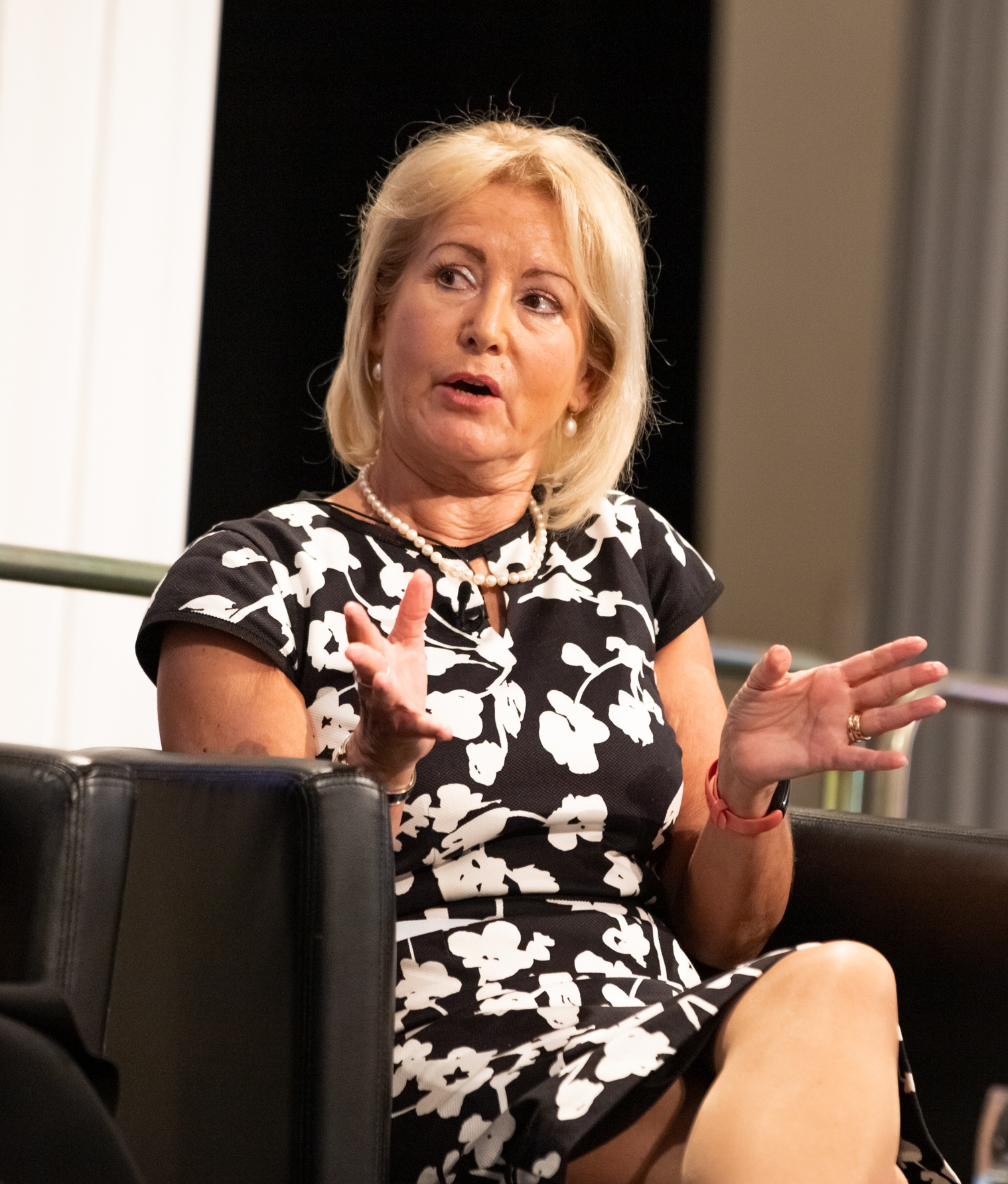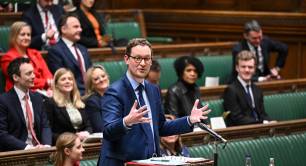Independent advisory group urges UK government to create an ‘Office for the Impact Economy’
The final report from the Social Impact Investment Advisory Group points to the lack of a coherent cross-department strategy on impact and calls for “sustainable and visible leadership” in government and the adoption of a “mobilisation mindset”.
The UK government’s independent advisory group on impact investing has urged ministers to create a cross-departmental Office for the Impact Economy to coordinate their efforts to boost the impact economy, in its final report published today.
The Social Impact Investment Advisory Group was set up in January by the Treasury and the Department for Culture, Media and Sport, to support the government on the development of a new social impact investment vehicle and to provide “recommendations on ways to effectively mobilise social impact capital”.
Chaired by Schroders chair Dame Elizabeth Corley, it includes the CEOs and representatives of a mix of impact investors, local government, asset managers, institutional investors, a large UK bank and sector advisory bodies.
The 13-strong group provided policymakers with an interim report in June, which informed the creation of the Better Futures Fund, a £500m outcomes fund to support disadvantaged children and young people.
In today's report, the group identifies a lack of coherent policy on impact across government and an “ad hoc” approach where successful partnerships with the impact economy remain in isolation, failing to unlock the full potential of the impact economy.
The government should instead move to a “coordinated, strategic approach” which could support and grow the impact economy and help the delivery of Labour’s “national renewal” ambitions for economic growth that benefits everyone, according to the report.
 The group recommends establishing “sustained and visible leadership” for the impact economy across government, with an Office for the Impact Economy that would create a “clear front door” for all stakeholders.
The group recommends establishing “sustained and visible leadership” for the impact economy across government, with an Office for the Impact Economy that would create a “clear front door” for all stakeholders.
Corley (pictured) said: “It is clear that the opportunity for the Government to partner with the impact economy is too big to ignore, with the potential to unlock billions and help address some of the biggest challenges facing the country.
“Our report outlines the steps the Government can take to work with the impact economy, to move from ad hoc projects to a system-wide partnership and deliver better outcomes and growth across the UK.”
Mobilisation mindset
With public resources under strain, the group said that central to a successful government strategy would be a “mobilisation mindset” where public funds are used to crowd in other sources of impact capital – such as private investment or philanthropy. The government could use its power as a funder but also as a regulator, service commissioner and infrastructure builder to develop a positive environment for impact enterprises to thrive.
Examples include the use of social outcomes contracts (like the Life Chances Fund), the provision of guarantees in some higher risk impact investments (such as the Affordable Homes Guarantee Scheme), or the creation of Better Society Capital.
 Member of the group Kieron Boyle (pictured), chair of the Impact Investing Institute and CEO of 100x Impact, said: “To meet the scale of the challenges ahead, we need to move from isolated innovation to a shared mobilisation of resources – aligning capital and capability behind shared priorities that matter to people, like inclusive local growth, better health and affordable housing.”
Member of the group Kieron Boyle (pictured), chair of the Impact Investing Institute and CEO of 100x Impact, said: “To meet the scale of the challenges ahead, we need to move from isolated innovation to a shared mobilisation of resources – aligning capital and capability behind shared priorities that matter to people, like inclusive local growth, better health and affordable housing.”
Better awareness of the impact economy is also needed in government departments and local authorities, according to the group, which recommends the creation of an ‘Impact Partnerships Academy’ to equip officials with the skills needed to work effectively with impact economy organisations.
Regulations in some instances are also blocking the government from working with the impact economy, according to the report, which recommends targeted reforms to pension fiduciary duty, gift aid and wealth advice that would remove those barriers and unlock more capital for impact.
We need to move from isolated innovation to a shared mobilisation of resources
Pete Gladwell, group managing director for public investment at Legal & General, said: “There is huge potential for impact investment to change lives and places across the UK for the better... However, this potential will only be unlocked when civil servants at local and national level move on from the traditional [Treasury] ‘borrow and spend’ model to harnessing pension funds and philanthropy as a force for good.”
The government is expected to respond within the next two weeks, according to the Impact Investing Institute, which provided practical support to the group and drafted the report.
The group acknowledges that the impact sector also needs to improve to better work with government: “We recognise that, for partnership to succeed, the impact economy must also evolve. We need to organise ourselves more effectively to be a coherent, reliable, and accessible partner for government.”
The report recommends the creation of an independent Impact Economy Advisory Group as a successor, and suggests the creation of an annual Civil Society and Impact Economy Summit that would be organised by both the impact sector and the government.
The advisory group collaborated with 57 organisations from across the social impact investment and business sectors, including Social Enterprise UK, Access, the Foundation for Social Investment, Pathway Fund and Power to Change.
Government interest
Government ministers have in recent months shown sustained interest in working with the impact sector. In its new industrial strategy published in June, it committed to “deepen collaboration with the impact economy, and with businesses which have a social purpose”; in July, the Office of Investment started recruiting for a head of impact investing and philanthropy to work in an ‘Impact Capital Function’, and the Better Futures Fund was celebrated as a real “vote of confidence” in impact investing when it was announced later in the summer.
The idea of the creation of an Office for the Impact Economy had already been put forward ahead of the 2024 general election by former Labour chief secretary to the Treasury Stephen Timms. In an article for City AM, Timms urged an upcoming Labour government to “forge a strategic partnership with the impact economy” and create an Office for the Impact Economy. Rumours that the government is already working on the creation of such a cross-department body have also been ongoing for some time.
- Read more: UK Government commits to ‘deepen collaboration with the impact economy’ in new industrial strategy
Interest towards impact investing appears to be growing in the Labour backbenches too. Last month, Labour MP Liam Byrne tabled an amendment to the Pension Schemes Bill that would confirm that pension fund managers can legally consider how investments would affect their members’ living standards as well as the broader economy, society and the environment. Proponents of impact investing claim that the current laws around fiduciary duty hold schemes back from directing capital towards impactful investments, and that if passed, the amendment could unlock pension funds’ capital for impact investing.
Top image: Keir Starmer holds the weekly cabinet meeting with ministers. Credit: Simon Dawson / No 10 Downing Street
| Ready to invest in independent, solutions-based journalism?
Our paying members get unrestricted access to all our content, while helping to sustain our journalism. Plus, we’re an independently owned social enterprise, so joining our mission means you’re investing in the social economy. |




